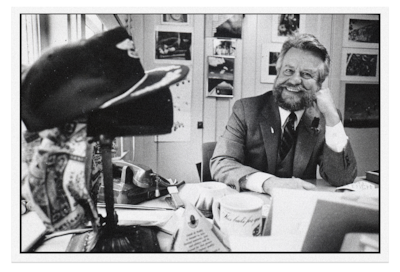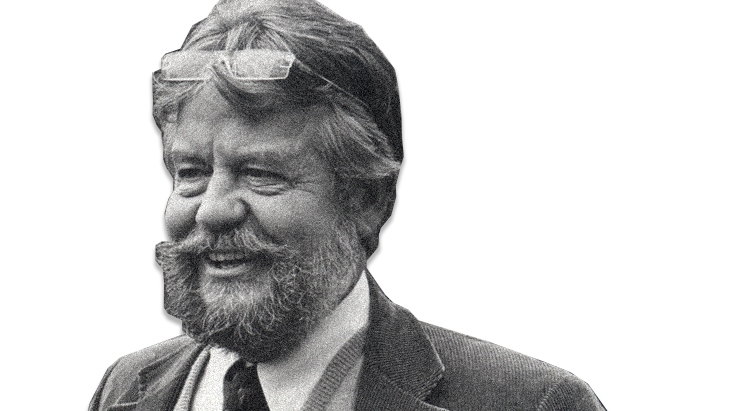He wasn’t a politician. He was a bartender. He rode a bike. He wore lederhosen. His trademark “whoop, whoop!” battle cry was inspired by his pet guinea pig. WW once described him as a “gnome on wheels.”
The quintessential outsider, Bud Clark combined a defiant, maverick spirit with the sunny conviction that Portland could be a better place.
Clark had never held public office—his most visible role was barkeep at the Goose Hollow Inn. But in 1984, he launched a longshot campaign for mayor against incumbent Frank Ivancie, a big-business pol with a mean reputation. Most observers wrote Clark off as a joke. The Oregonian ran only a single article about him.
Boy, were they wrong.
Clark’s stunning insurgent victory against Ivancie, winning 55% of the vote in the primary, sent shockwaves through the city. It heralded a new era in Portland politics. Suddenly, the traditional heavyweights in city politics—the developers, business interests, and big law firms—were out of the driver’s seat.

Clark delighted fans with his idiosyncrasies. He showed up at his first official press conference in a canoe. But he also surprised many supporters with his austere approach to spending. (He left the city with a $20 million surplus.) He was serious about fixing the city’s problems. He launched a 12-point plan to tackle homelessness, worked on building the MAX line to Gresham, and created the Oregon Convention Center to bring in tourist dollars and revitalize the inner eastside.
Clark’s biggest challenge was reining in the Police Bureau. He hired the city’s first female police chief, Penny Harrington, and pushed the bureau to adopt a then-radical policy known as “community policing.” But Harrington’s tenure as chief was rocky, and Clark ran through no fewer than six police chiefs in his eight years in office. He fired two officers for making and selling racist T-shirts, but the police union reinstated them.
“Dad never saw himself as a politician,” says his son Nick Clark. “He just thought we could do better. He loved that quote on the Skidmore Fountain, ‘Good citizens are the riches of a city.’”
Carry it forward: After serving two terms, Clark went back to the Goose Hollow Inn. Customers often used to urge him to run for mayor again, according to his daughter Rachel, who manages the tavern now. “He’d look at them and say, ‘It’s your turn,’” she says.
 Opens in new window
Opens in new window